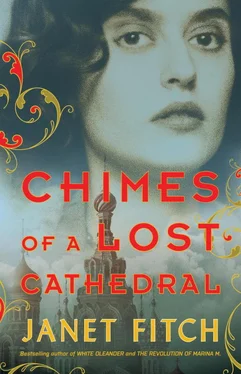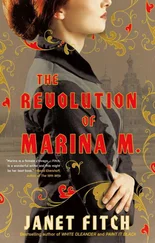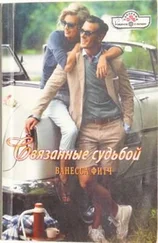I stamped my feet in the queue and exhaled white breath, waiting for dawn, in boots that had been resoled by Bogdan Ionian, and tried to keep my legs from cramping. I wished I had a book to read. I wished it as much as you might wish for a nice steak with a pat of butter on top. Not a newspaper—Zinoviev thundering away—but a real book. A novel, a big fat one. Tolstoy. Or Dickens, I would die for Dickens. I’d read everything at Korsakova’s—the ragged Nat Pinkertons in Mikhail Gendelev’s room, and Berkovin’s copy of Gorky’s Luckless Pavel, all of which I’d “borrowed” several times. Perhaps Korsakova had something in her room, but I’d never been invited in. Aside from the men’s reading, I fed off Liza’s small threadbare cache of schoolbooks: an old biology text written about the time William Harvey cut up his first frog, a basic mathematics, a collection of Afanasyev’s folk tales illustrated by Bilibin, Pushkin’s “The Bronze Horseman,” and a book of morning and evening prayers, which I never saw her open. I impressed her by reciting the “Horseman” from beginning to end from memory as she followed along in the book. “I love you, Peter’s creature / I love your strong, terrifying gaze…” And better, I had a chance to examine the collection beneath the floorboards: a clandestine copy of The Tale of Warlord Dracula, Mary Shelley’s Frankenstein in a cheap clothbound edition, and a translation of Edgar Allan Poe by Balmont. No wonder Liza had trouble sleeping.
Now, in the cold half-light pushing toward dawn, I had nothing but my heartbeat and Pushkin to keep me company: I love you, Peter’s creature… But I wouldn’t be going back to Petrograd anytime soon. At long and blessed last, the sun rose, and in the morning light, like warming birds, the sound of women’s chatter began to fill the silence. Somebody was making eyes at someone’s husband. A commissar’s wife was taking French lessons. Somebody was pregnant again. Someone’s baby was sick. Someone’s daughter was running around with a mechanic. I didn’t know anything, and if I had, I wouldn’t share it with these old girls for love or money. Why hadn’t I gone abroad when I had the chance? I could be at Oxford now, studying English literature and publishing my poems.
Abroad . Was it still there, abroad ? My nightly fantasies swirled around the sound. Not in three years when this war would certainly be over, the way Varvara and I had dreamed it, after the world revolution. But abroad as it always had been for us—everywhere that was not Russia. The place where people were educated and read new books and hadn’t had a reactionary monarchy sitting on their heads for three hundred years.
I saw myself at twenty-one at a café in New York, the bourgeois young lady, wearing a coat that was sometimes sable, sometimes gray chinchilla, eating a steak fried in butter. I imagined myself half naked in California, sunbathing on a rocky shore. Or in Buenos Aires, dancing a tango with Kolya Shurov, finally together the way we should always have been—not in a wagon scratching our fleas but in the great world. In my fantasy, how he begged my forgiveness, how he wept on his knees! And eventually, when I did forgive him, we would laugh to remember how we’d been peasants together, a world ago.
But I could not put the baby into that picture. With the baby, there should be a promenade by the sea—Yalta, or Nice. The Lido at Venice, why not? The baby—no, a child by then. Nicely dressed, a laughing boy, running after a ball, followed by a small, bright-eyed dog. A boy in a white sailor suit…
I groaned at my own bourgeois longings. What had happened to my revolutionary fervor? Equality and good conditions for all? Why not picture a bold and rugged boy, sticking up for his little comrades, skillful and useful and practical? But it was harder to picture than the Ligurian seashore. Why? Because I could not see the end of it, only this blasted queue, the eternal waiting, and I had to pee. I asked the woman behind me, a woman with a small girl, if she would hold my place.
What madness, I thought, squatting on the far side of the depot, teetering and struggling not to fall into the snow or wet myself. Flailing like a goose, I lost my balance and fell anyway. I cursed the world as I lurched to my feet, my derriere and skirt wet through. What kind of irresponsible God would give me a poor innocent baby to care for?
“Thanks,” I said to the woman when I finally came back into line, my clothes freezing to my backside. How somberly the woman’s child looked up at me, big-eyed and blue with cold, half-starved already. This was what I was bringing into the world. Not that rosy-faced boy in the sailor suit. Just another starveling. Someone who would never know a good meal, the thrill of a winter’s gallop in a sleigh nestled under a fur rug. No, he would attend a school much like Liza’s with its out-of-date textbooks, and potatoes cooked in castor oil. He would have cracked shoes and be inspected for lice. No Avdokia to take tender care of him. How I envied my mother, how I envied my younger self.
Now I was the servant. And mine would be a servant’s child, that most expendable of expendable human commodities. I smiled at the little girl, tried to get her to smile back. Suddenly it seemed of absolute importance to see if I could get that child to grin, or stick out her tongue. I touched my tongue to my nose, whistled like a dove through my hands, pretended to insert my finger to the first knuckle into my nose, but she just stared, drawing closer to her mother. I had to stop. There just wasn’t a smile in her. She was like a somber little woman, suspicious of my oversized child self and my antics. No childhood for these children of the revolution.
How selfish I was, to have this baby. So stubborn. What a romantic. Every bit as foolish as the foolish Yulia chasing her man to Tver.
At last, the line lurched on, the shop opened. After a time, I peered back at the shy little girl from between my fingers, like a mask. She clung to her mother’s hand, staring at my odd Ionian clothes. Had she never seen a clown before? She was what, four? Five? What had she known but hunger, the hunched, resigned shoulders of women in their kerchiefs and shawls, their bags and worn boots and patched coats. But these women had been young once, had laughed, had danced, had teased a handsome man. There had been joy in Tikhvin, once upon a time.
I took my notebook from my bag and began to write something about the wasted time of all of us women, “A Poem to the Queue.” The little girl with the somber face had inspired me. I was tired of the clumsy drabness of my own thoughts. Fun was rarer than peacocks. It made me laugh. Not a sound much heard in a morning bread queue. The old woman in front of me, fragile shouldered, in a heavy scarf, turned my way. “What are you writing, devushka ?”
I shrugged. “Something I was thinking.”
“Something funny? Read it.” She nudged another woman, a broad-shouldered baba with a faint moustache. “Listen, she’s written a funny joke.”
“Well, let’s hear it,” said the bigger woman. The lines on her face were weathered hard, like ironed taffeta, I swear I could hear her face crinkle when she spoke. “God have mercy, I could use a laugh.”
“It’s not done yet,” I said. Tickled that someone would want to hear it, especially this crusty old girl.
“Go on.” She squinted to read the tiny scrawl.
I couldn’t resist. “A Poem to the Queue,” I began.
Attention, comrades. Podrugi.
Sisters, mothers, aunts.
(You too, Granny.)
“Snothead,” the solid baba murmured good-naturedly.
Читать дальше












